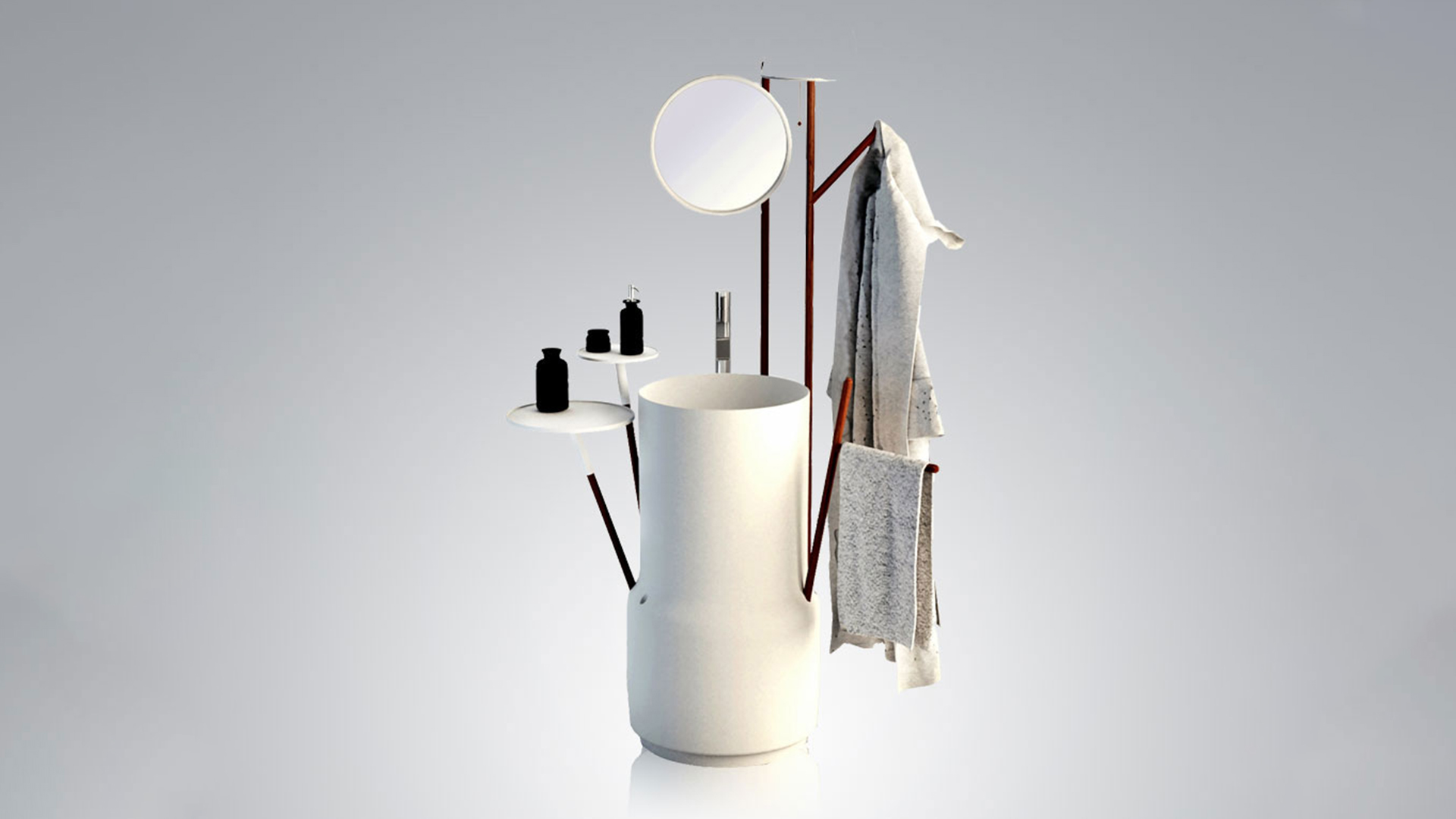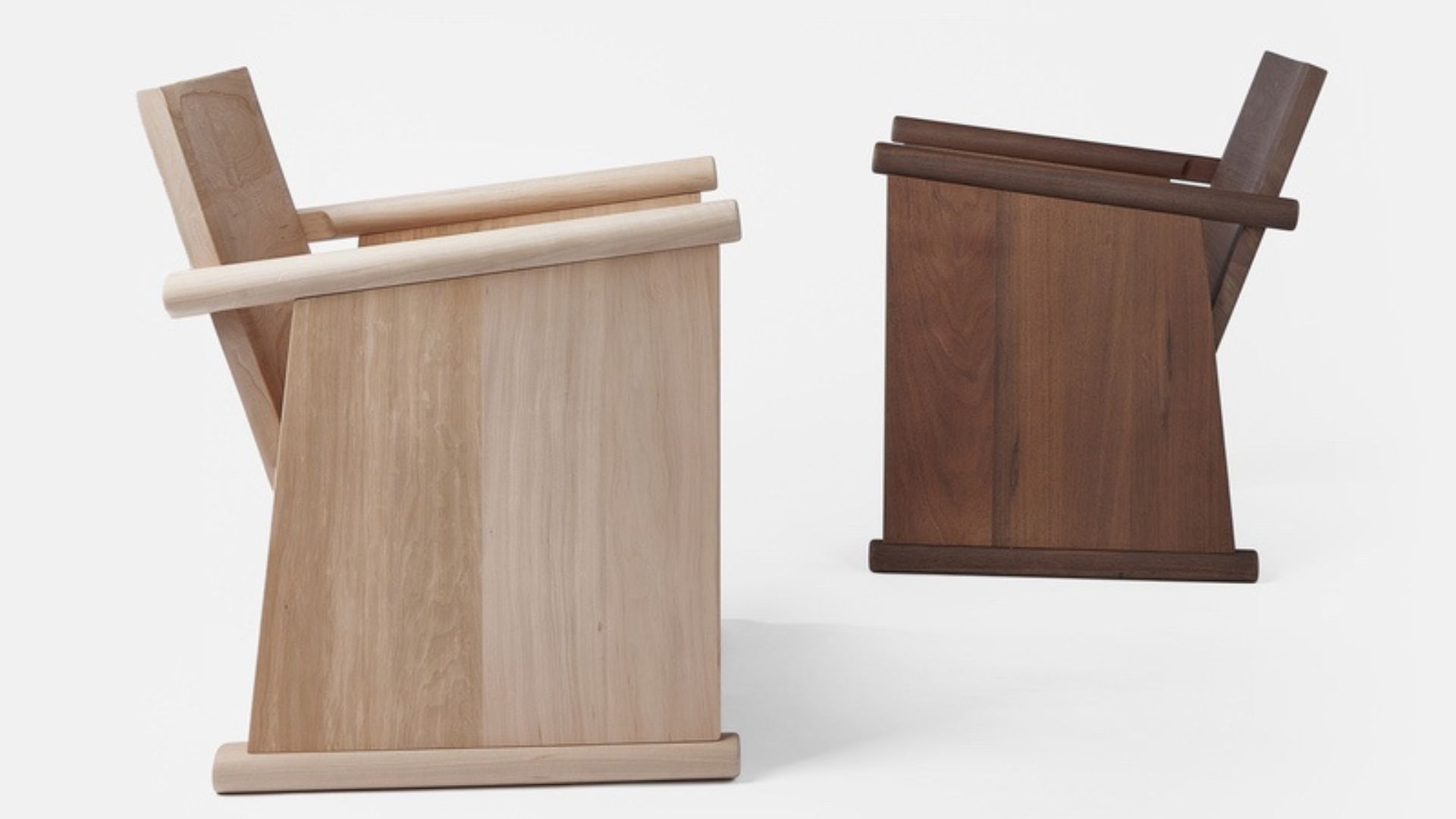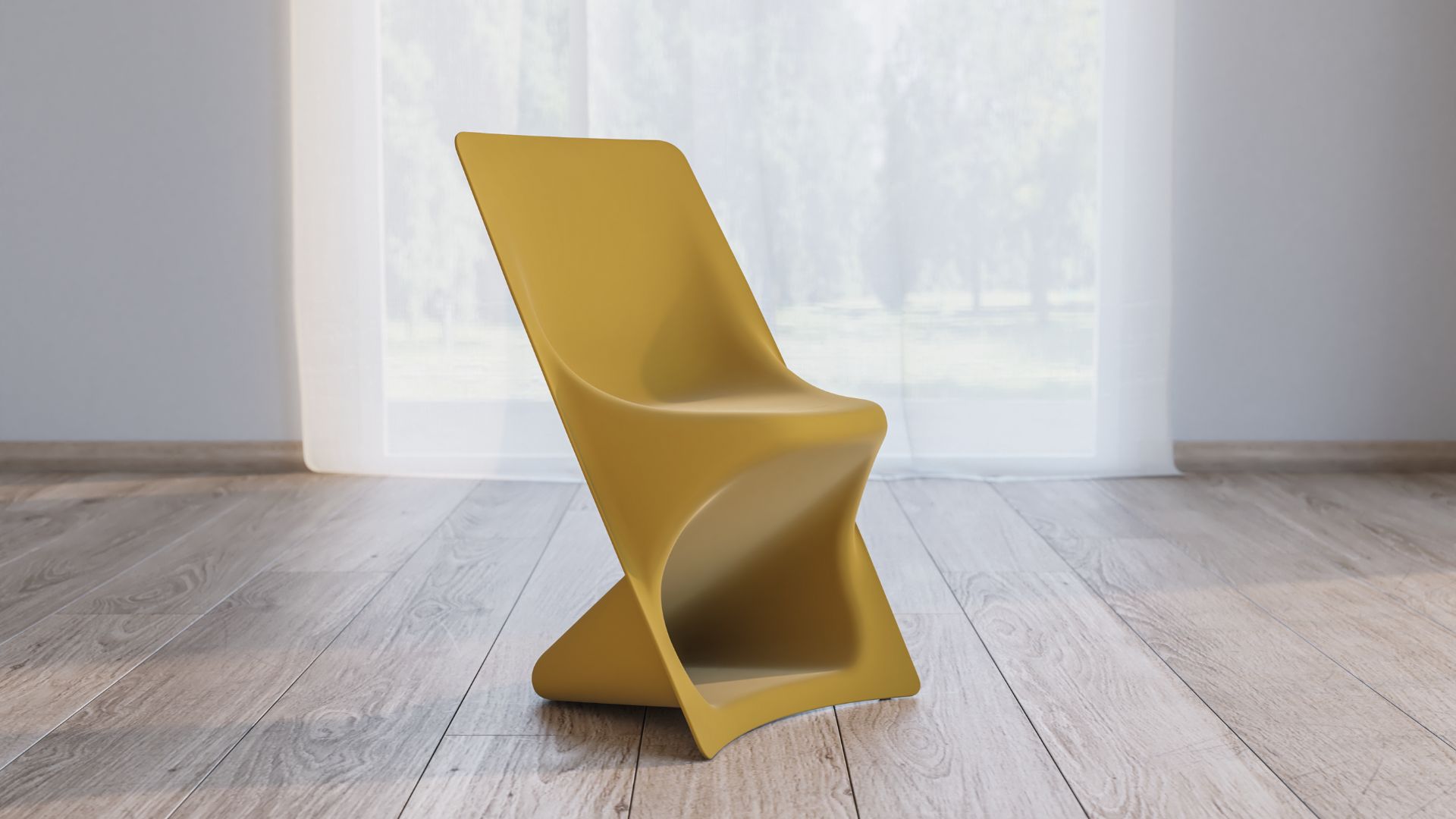Lehni: a century-long legacy as a Swiss metalworking manufacturer
At the recent Milan Design Week, The House of Switzerland curated a dynamic exhibition showcasing diverse interpretations of the “Urgent Legacy” theme, while providing a comprehensive representation of Switzerland’s design ecosystem

Among the key players in this exhibition was the Swiss company Lehni. With a century-long history, the company has established itself as a premier manufacturer in the field of metalworking. Originally founded as a plumbing workshop in 1922, Lehni has maintained strong connections to the realms of architecture and art from its inception.
Collaborations with notable figures like Max Bill in the 1930s, followed by esteemed artists such as Sol LeWitt and Donald Judd, firmly established Lehni’s presence in the creative sphere. In 1956, Rudolf Lehni Jr. significantly expanded the company’s scope, venturing into the realm of industrial design.
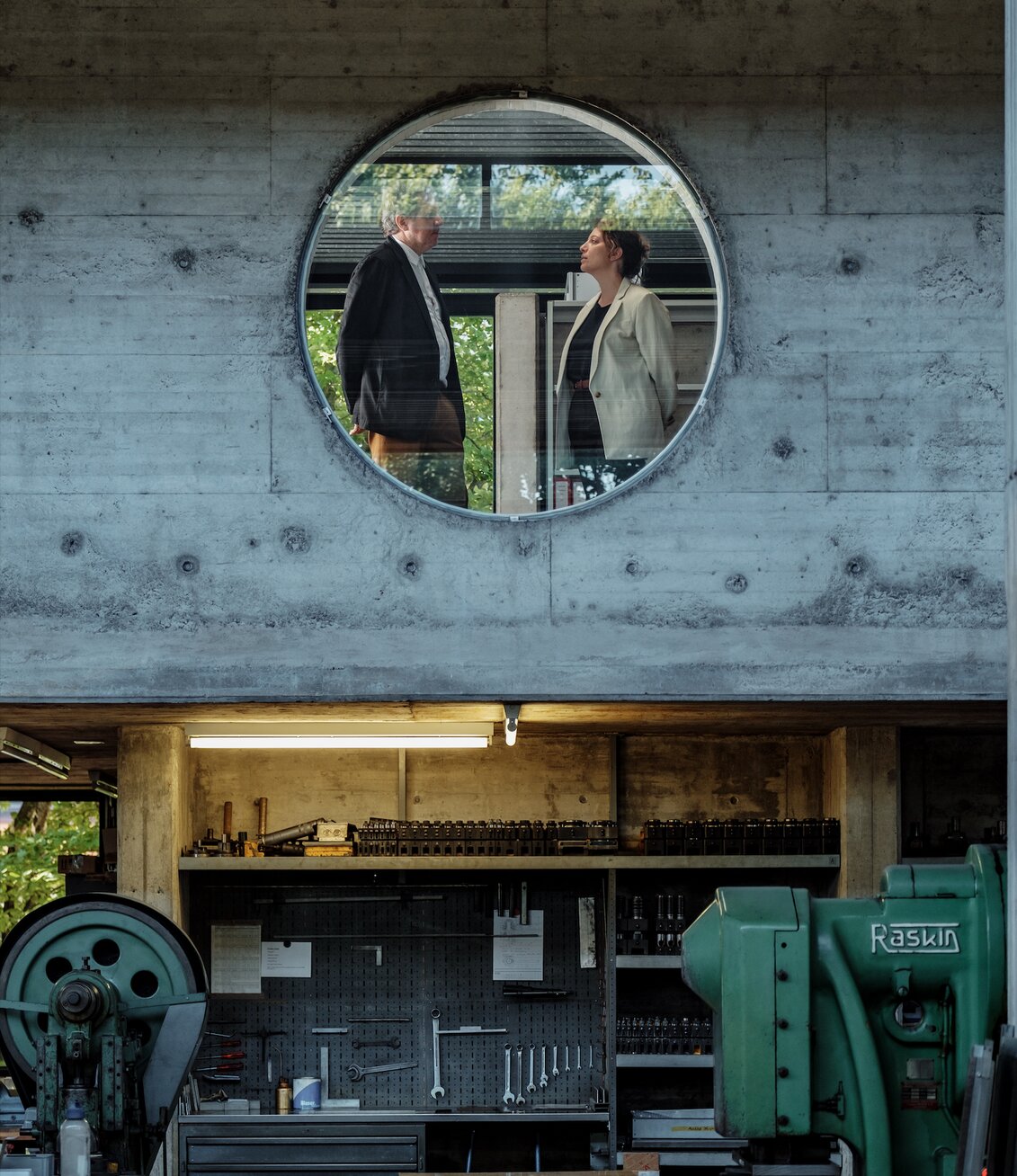
This marked the introduction of the first furniture piece in the Lehni collection: the aluminium shelf, designed by Swiss designer Andreas Christen in 1964. Aluminium, with its rich heritage in Swiss design, boasts attributes such as reusability, lightweight strength, formability, and corrosion resistance.
Lehni continues to leverage these advantageous characteristics today, crafting designs that are minimalist, enduring, and sustainable. Each creation from Lehni exemplifies meticulous planning, masterful craftsmanship, and an elegant fusion of function, quality, and aesthetic allure.

“In everything we do, we always concentrate on the essential: everything from the house of Lehni is radically and masterfully produced in a harmonious interplay of function, quality and formal beauty. Aesthetics is never an end in itself, but always follows the function. At the same time, our products always remain what they are A shelf is a shelf, just as a wardrobe is simply an elegant and practical way to store one’s clothes.” says the company.
During the Milan design Week, Lehni showcased its timeless Aluminium Shelf, which continues to epitomize the company’s expertise since the 1960s. To facilitate customer planning, a dedicated configurator was developed in 2022 for the Aluminium Shelf.

Alongside this classic piece, the exhibition featured other notable items from Lehni’s historic collection. The side table, a factory design originating from the 1970s, and the Ensō lounge chair, introduced in 2021, designed in collaboration with Brand Qwstion by Frédéric Dedelley and Christian Kägi, were also on display.
The Ensō lounge chair embraces the principles of the circular economy, incorporating a structure composed of 70% recycled aluminium and a seat fabric crafted from Bananatex. This innovative fabric, developed by Brand Qwstion, is derived entirely from banana tree fibers and is fully compostable.
Making its debut at the 2023 Salon, Lehni presented the Flex 2.0 table, designed by Hanspeter Weidmann between 2012 and 2023. The Flex table impresses with its simplicity, consisting of only three laser-cut aluminium parts that are folded and screwed together, devoid of welding or adhesive materials—characteristic features of Lehni’s furniture.
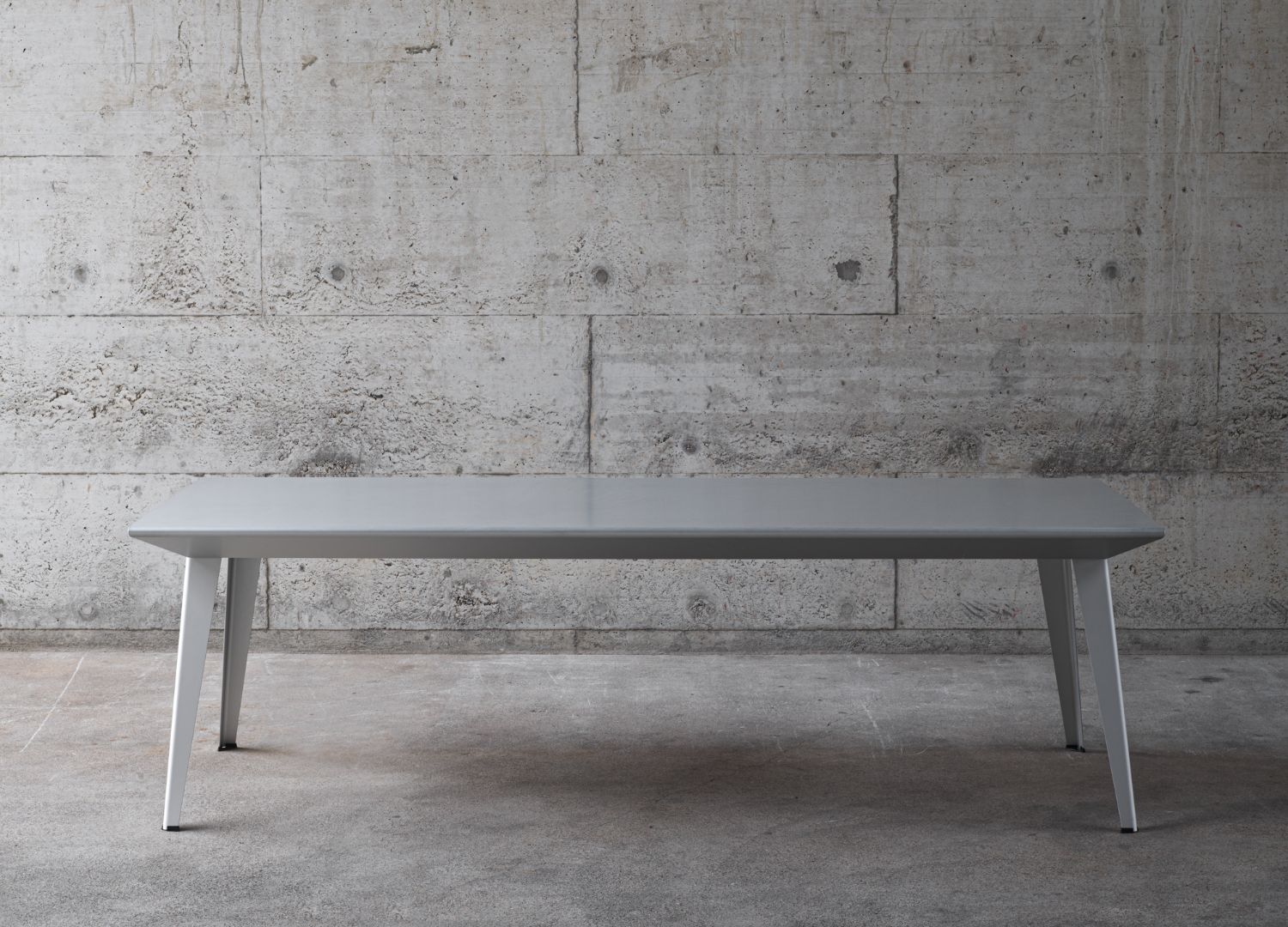
This table exemplifies practicality and functionality with its minimalistic design, while its anodized surface and proportionate form exude elegance. The use of aluminium as the primary material grants the table an extraordinary lightness.








